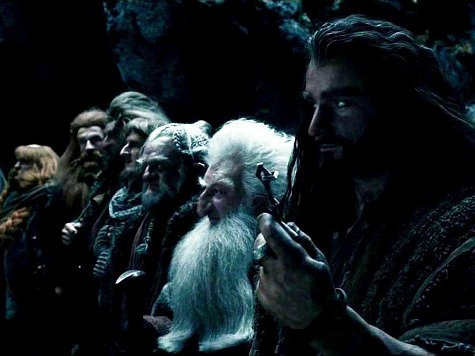
The Lord of the Rings trilogy set the bar impossibly high for fantasy filmmaking, but its depiction of an epic, unabashed battle between good and evil heartened conservative movie goers.
The Hobbit: An Unexpected Journey, the first film in a new J.R.R. Tolkien trilogy, mostly abandoned that theme, along with the Rings’ superb storytelling.
So it’s good to see The Hobbit: The Desolation of Smaug reclaim the original trilogy’s moral righteousness and stellar action sequences. No, director Peter Jackson doesn’t bring Middle Earth to a halt to speechify about ideological battles. Still, watching Smaug makes clear the stakes at play.
The dwarves who fought so bravely in the first and now the second Hobbit features want to reclaim their homeland from the wicked dragon named Smaug. To do so, they’ll have to unite with other Middle Earth forces who also stand firmly against evil.
That union isn’t easily achieved, but the existence of a common enemy bent on the destruction of all that is good gives the fledgling band its power.
It’s reminiscent of the coalition formed in the Rings trilogy, a series that came out during the early days of President George W. Bush’s War on Terror campaign. Bush argued persuasively against the threat radical Islam faced, welcoming countries who also stood against terror to join the U.S. in battling terrorism and its minions.
Smaug, while a vast improvement over the bloated, often silly Journey, still isn’t as robust a movie experience as any of the Rings features. The sequel’s moral clarity, however, is a welcome sight.

COMMENTS
Please let us know if you're having issues with commenting.